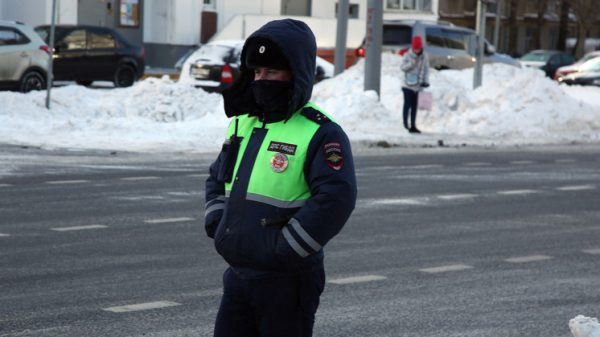 RMT members are working on industrial action as part of the London Overground plan in February and March. Photo: Simon Newman/Reuters
RMT members are working on industrial action as part of the London Overground plan in February and March. Photo: Simon Newman/Reuters
Commuters face more strikes and disruption in February and March as RMT union members working on London Overground walk out over pay.
More than 300 workers will take part in the strike, which includes strikes and non-strike actions.
This comes after a week of strikes and disruptions on the railway after train drivers staged rolling strikes and a ban on overtime.
Travelers have suffered 20 months of disruption since unions began a wage dispute with the government and train operators. companies.
Here's everything you need to know about the upcoming strikes.
When will the train strikes take place?
Aslef union members are on strike for five days from Tuesday 30 January to Monday on February 5, and also banned overtime for nine days starting on January 29. A total of 16 train operators were affected.
RMT union members will be on strike at London Overground in February and March.
Monday 19 February:London Overground
Tuesday 20 February:Overland London
Monday 4 March:Overground London
Tuesday 5 March:Overland London
Will there be more national train strikes?
Aslef's ongoing wage dispute has hit travelers over the past 20 months, and train drivers, represented by the Aslef union, voted overwhelmingly to continue the strike, potentially causing more suffering for passengers in 2024.
Strikes have also been carried out since June 2022 by members of the Rail, Maritime and Transport (RMT) union. But they voted overwhelmingly in December to accept an agreement that would end their long-running dispute over wages and working conditions. Under the agreement, the union will suspend industrial action until at least April 2024 in exchange for a backdated payment offer that would put all members in line for a one-off Christmas payment of at least £1,750.
What about minimum levels? service?
A bill on minimum standards for passenger rail, ambulance and fire and rescue services was passed in July to ensure essential services remain intact. This means employers will be able to fire employees who refuse to come to work when ordered to, and unions that fail to meet minimum requirements could face legal action.
However, Aslef responded by warning that such legislation could make any strike worse.
Mr Whelan said: “Having seen the determination of our members and the support train drivers please our passengers and the public since this dispute began in June 2022, the Tories have now tried their old trick: changing the rules.
“When they couldn't get us to back down, they introduced minimum service levels — designed to effectively ban strikes, rendering them ineffective — but this new law will not ease labor struggles. This will only make the situation worse.»
Tips for traveling during train strikes
Transport for London recommends passengers use the status update tool before traveling and check alternative routes.
 RMT general secretary Mick Lynch said his workers were «furious» over their latest pay offer. Photo: Lucy North/PA. Why is the RMT union on strike?
RMT general secretary Mick Lynch said his workers were «furious» over their latest pay offer. Photo: Lucy North/PA. Why is the RMT union on strike?
RMT general secretary Mick Lynch said: “London Underground workers do important work delivering TfL services and supporting passengers to travel across London.”
“Our members are furious that they were offered below-inflation wages. and want to see improvement that reflects the value they bring to the company.
“If this dispute cannot be resolved, then RMT is more than prepared for an extended period of industrial action to secure pay for London Overground workers. they deserve a promotion.”
Why did Aslef’s workers go on strike?
The Aslef pay dispute has been ongoing since the first ballot papers were published in June 2022, with the union accusing the Government of failing to end the row.
Mr Whelan said: “We have given the Government every opportunity to sit down to the negotiating table, but it has been a year since we have had any contact with the Department of Transport. It's clear they don't want to settle this dispute.
“Many members have failed to get a penny of pay rise in half a century during which inflation has risen sharply, and with it the cost of living. We did not ask for an increase during the pandemic when we worked through lockdown as key workers, risking our lives to move goods around the country and enable the NHS and other workers to get to work.
“ Frankly, there is no justification for all this nonsense. The government and [train operators] must do the right thing and come to the table with a realistic offer so we can end this dispute and work together to secure the future of our railways.»






















































Свежие комментарии